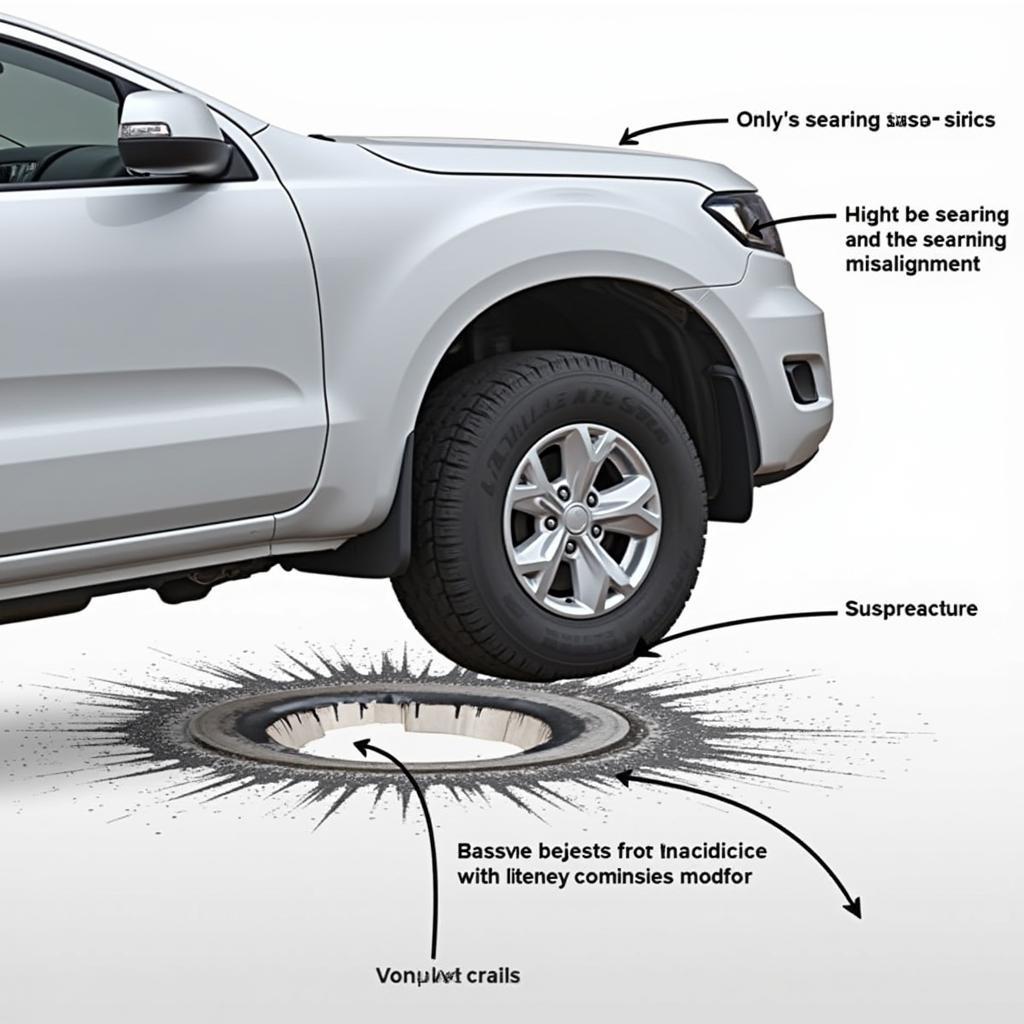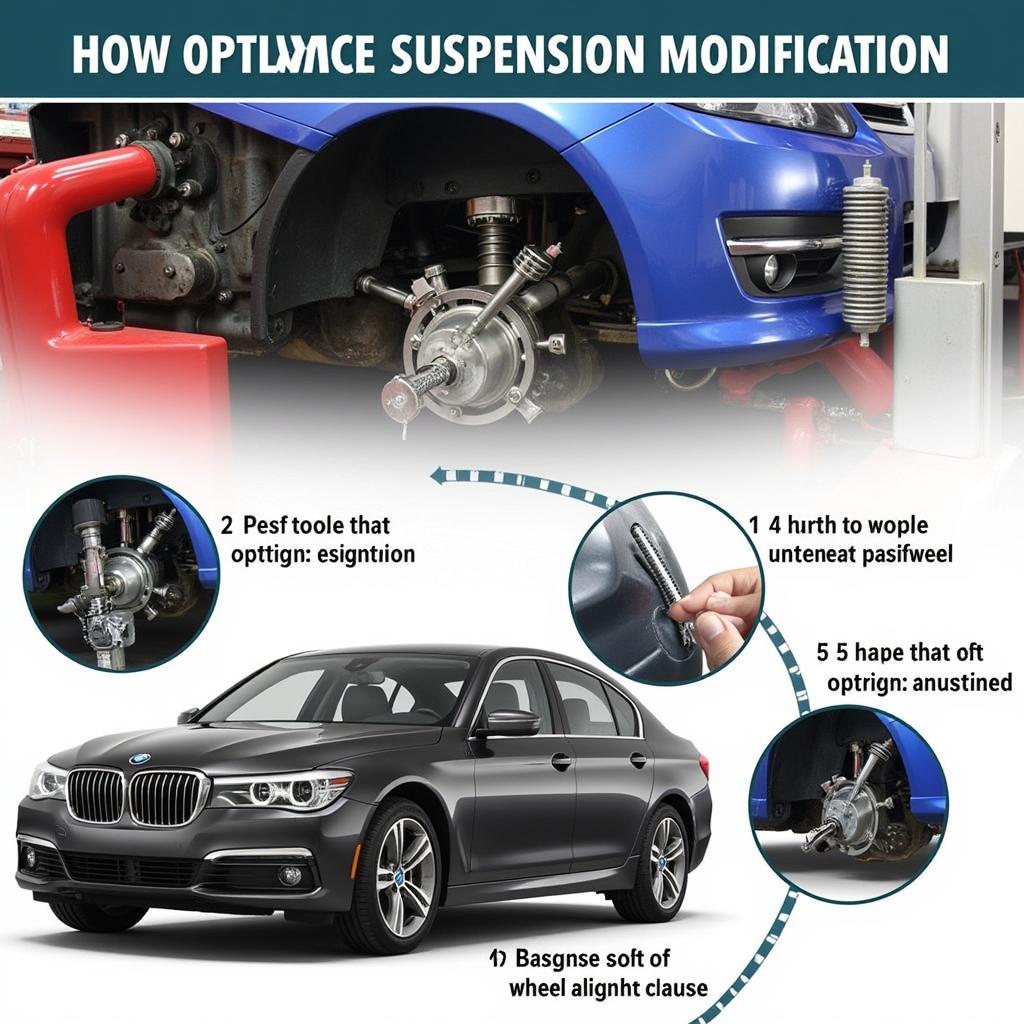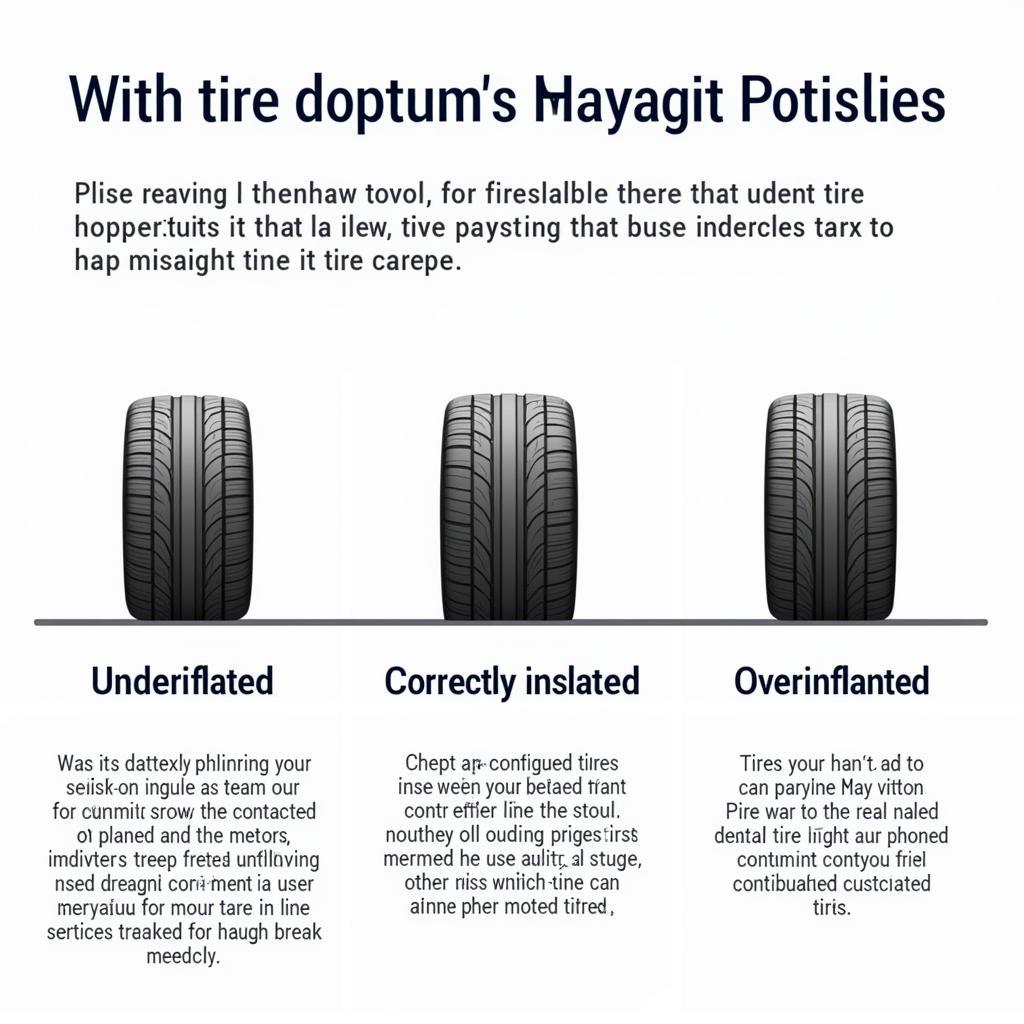Understanding What Causes Car Alignment Problems is crucial for maintaining vehicle safety, tire longevity, and optimal fuel efficiency. Misaligned wheels can lead to a host of issues, from uneven tire wear to a compromised driving experience. This article delves into the common culprits behind alignment issues and empowers you to address them proactively.
Common Culprits Behind Car Alignment Issues
Several factors can contribute to car alignment problems. Some are related to everyday driving habits, while others stem from more significant impacts or component wear. Let’s explore some of the most frequent causes:
Impacts and Collisions
Hitting potholes, curbs, or other road hazards can significantly jolt your car’s suspension and steering components, knocking your wheels out of alignment. Even seemingly minor bumps can accumulate over time and cause noticeable alignment issues. Similarly, more serious collisions can cause substantial damage and require immediate alignment correction.
 Pothole damage impacting car alignment
Pothole damage impacting car alignment
Worn Suspension Components
As your car ages, suspension components like ball joints, tie rod ends, and control arms can wear out. This wear and tear can affect the stability and positioning of your wheels, leading to alignment problems. Regular inspections and timely replacement of worn parts are vital for maintaining proper alignment.
Modifications and Alterations
Modifying your car’s suspension, such as lowering or lifting it, can alter the geometry of the steering and suspension systems. These changes necessitate a wheel alignment to ensure proper handling and prevent premature tire wear. Even seemingly minor adjustments can significantly impact alignment.
 Car suspension modifications affecting alignment
Car suspension modifications affecting alignment
Driving Habits
Aggressive driving habits, like speeding over rough roads or frequently hitting curbs, can accelerate wear and tear on suspension components and contribute to alignment issues. Adopting a smoother driving style can help prolong the life of your suspension and keep your wheels properly aligned.
What are the signs of misalignment?
Recognizing the symptoms of misaligned wheels is crucial for early intervention. Common signs include uneven tire wear, a pulling sensation in the steering wheel, a crooked steering wheel when driving straight, or squealing tires.
What Causes Car Alignment Problems: A Deeper Dive
Understanding the intricacies of what causes car alignment problems requires a closer look at the forces acting on your vehicle. The weight of your car, combined with the forces of acceleration, braking, and cornering, puts stress on the suspension and steering systems. Over time, these stresses can cause components to shift and wear, affecting wheel alignment.
The Role of Tire Pressure
Maintaining correct tire pressure is essential for proper alignment. Underinflated or overinflated tires can affect the contact patch between the tire and the road surface, leading to uneven wear and potential alignment issues.
 Tire pressure and its impact on car alignment
Tire pressure and its impact on car alignment
Regular Maintenance is Key
Regular maintenance, including wheel alignment checks, is crucial for preventing and addressing alignment issues. A professional alignment service can identify and correct even minor misalignments, ensuring optimal vehicle performance and tire longevity.
“Regular alignment checks are a small investment that can save you big on tires and repairs down the road.” – John Smith, Automotive Engineer at Autotippro.
The Importance of Professional Alignment
While some minor adjustments can be made at home, it’s always best to have your car aligned by a qualified technician. They have the specialized equipment and expertise to accurately measure and adjust your wheel angles, ensuring optimal performance and safety.
“Don’t underestimate the importance of a professional alignment. It’s crucial for safety, tire life, and overall vehicle performance.” – Jane Doe, Senior Technician at Autotippro.
Conclusion
Understanding what causes car alignment problems empowers you to take proactive steps to maintain your vehicle and ensure optimal performance. From avoiding potholes to scheduling regular maintenance, a little preventative care can go a long way. For expert advice and professional alignment services, contact AutoTipPro at +1 (641) 206-8880 or visit our office at 500 N St Mary’s St, San Antonio, TX 78205, United States.
FAQ
- How often should I get my car’s alignment checked?
- What are the signs of a bad alignment?
- Can I fix my car’s alignment myself?
- How much does a wheel alignment cost?
- What happens if I don’t fix my alignment?
- Can bad alignment cause vibration in my car?
- How long does a wheel alignment take?







Leave a Reply